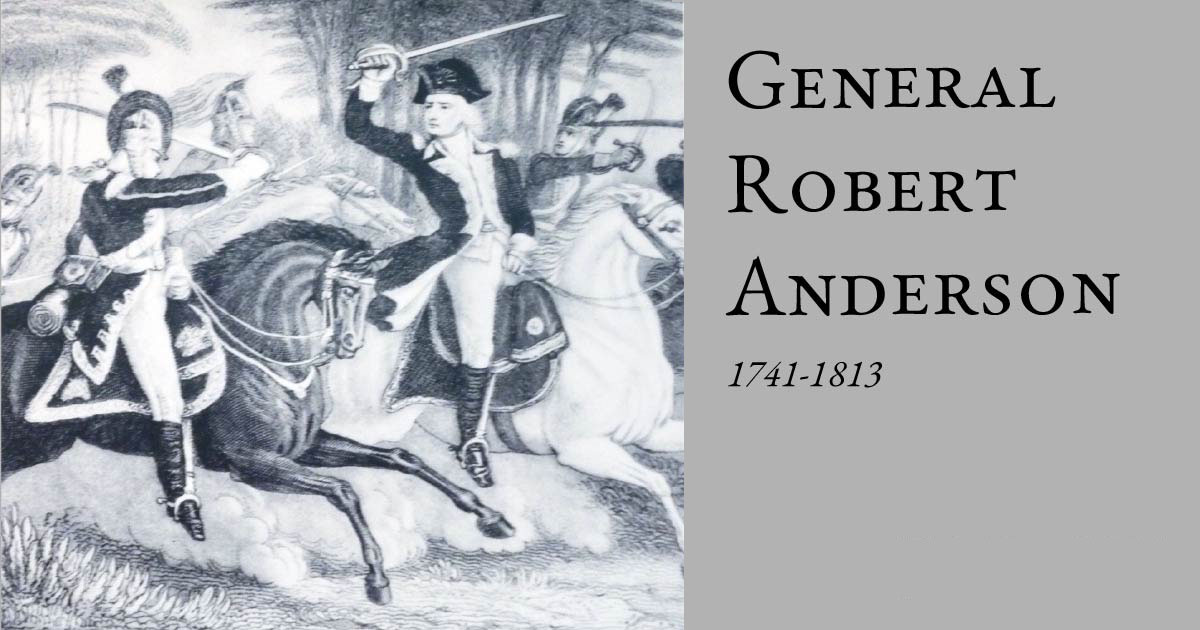Visit
 The Official Web Site of the State of South Carolina
The Official Web Site of the State of South Carolina

Robert Anderson was born in Virginia in 1741, the fifth child of a Scotch-Irish family who owned a prosperous farm in Augusta County, VA. As a young man, he journeyed into the South Carolina frontier to acquire lands in the newly opened Indian Territory.
At the outbreak of the American Revolution, Anderson joined the volunteer Patriot Army and was at one time a sergeant in the fifth South Carolina Regiment. Anderson soon joined his friend Andrew Pickens and fought at the battle of Kettle Creek, Georgia. The vastly outnumbered Patriot militia defeated a British force commanded by Colonel Boyd and stopped the British from recruiting more Tories. Anderson served in several capacities but eventually became a colonel in the Upper Ninety Six regiment which he commanded until March 30, 1783.
Robert Anderson fought at the battles of Musgrove’s Hill, King’s Mountain, and Cowpens. After that battle, Anderson joined Light Horse Harry Lee to capture Augusta. Anderson’s regiment was at the front during one of the bloodiest battles of the southern campaign at Eutaw Springs.
After the American Revolution, Anderson became a general in the state militia and saw action in several Indian campaigns. Later, he served in the South Carolina state legislature. Anderson spent his senior years in the Pendleton District as a gentleman farmer. He died in January of 1813 and was survived by five children. He was buried on his plantation near the Seneca River, though he would be reinterred at The Old Stone Church in Clemson prior to the filling of Hartwell Lake. The Civic Association of Anderson County designed and built the Anderson Memorial Fountain in 1906 to honor the namesake of this city and county of Anderson.